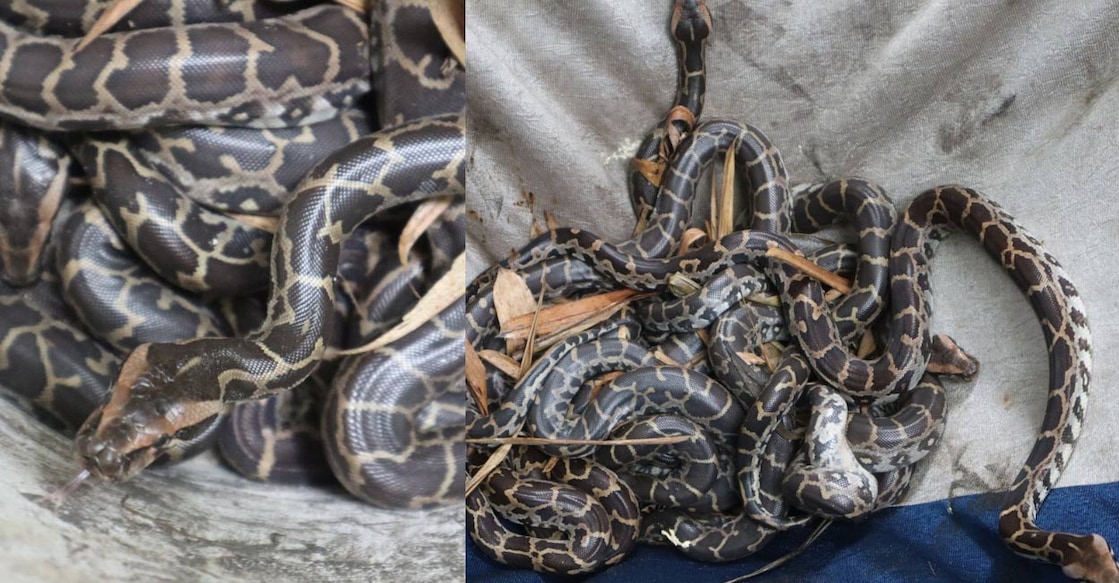Indian python eggs artificially hatched at snake park, Kannur, hatchlings to be displayed next month

Mail This Article
Kannur: Ten eggs of Indian rock python have been artificially hatched in a specially created environment at the MVR Snake Park and Zoo, Parassinikadavu. The Indian Rock Pythons are declared as the non-venomous snake to be protected under Schedule 1 of the Wildlife Protection Act, 1972. The MVR Snake Park has been engaged in an attempt to preserve the species and the hatching is part of this effort.
The python named Ruby laid ten eggs on April 9. The incubation period of the Pythons is normally two to three months. The pythons coil to form a pyramid-type position and keep the eggs under them to hatch. The snake twitches her muscles to raise the body temperature which keeps the eggs warm until they hatch. The pythons normally choose rock gaps to lay eggs to avoid direct sunlight and absorb moisture from the atmosphere to hatch the eggs.

"Here we had to duplicate the atmosphere needed to hatch the eggs at the park. We have an isolation ward at the snake park and we created an artificial habitat there. The persons involved in the hatching process have maintained the moisture in the habitat with the help of a drum filled with water and clay bricks. The drum will be filled with around a quarter of water and bricks will be filled in the drum standing above a certain level of water.
The basket with the eggs will be placed over these bricks and the drum will cover with a green net. The moisture to hatch the eggs will be maintained inside the drum with this arrangement. It took 58 days to hatch all the eggs and the hatchlings are all healthy,'' said A T Amaljith, curator of the park. December to February are normally the breeding period of the Pythons and they will lay clutches of 15-100 eggs from March to June.
"The pythons will normally express signs to breed during the winter period. We had placed a male python in the cage of Ruby for breeding purposes. The pythons are granted the same level of protection as the Asian Elephant in the country and we are promoting breeding to conserve and grow the species,'' Amaljith added.
The eggs were hatched on June 7 and hatchlings will be exhibited in a month. The hatchlings do not need any feed in the first month and they will be feed chicks from the second month. Later they will feed on live animals, birds, reptiles and amphibians. The pythons reach reproductive maturity at the age of two to three years. The hatchlings will be around 18-24 inches in length and a fully grown python will measure 6 metres in length and weighs around 90 kg.


